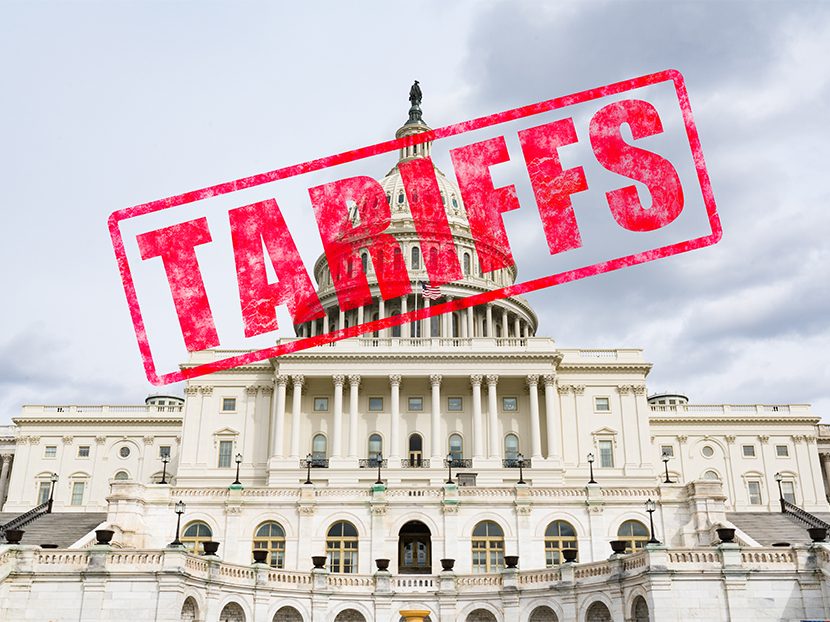PMI Examines Tariffs & Wisdom of Foresight

Nationally, for every $1,000 increase in the price of a home, about 152,903 households are priced out of the market for a median-priced new home, according to HousingEconomics.com. In an era when millennials and Generation Y are entering an expanding workforce and seeking new housing, rising home costs can be insurmountable.
That’s just one of the reasons the newly proposed tariffs on plumbing fixtures, fittings, sanitary ware, and component parts from China make so little sense. These are not items that endanger American security. If anything, tariffs will cause disproportionate economic harm to manufacturing businesses, retailers, home construction, commercial development, consumers, and other Americans and their businesses.
Home building, remodeling, and commercial development fuel job growth and by extension the marketplace for plumbing fixtures and fittings. The American plumbing fixtures and fittings manufacturing industry drives the American economy by creating more than 464,000 jobs and more than $26 billion dollars in wages when you factor in its impact on retailers, wholesalers, suppliers, distribution, and the supply chain. Let me say it differently, the ripple effect of plumbing fixture and fitting manufacturing is 271,313 American jobs. If demand for our products fall, then — well, you know the rest.
A National Retail Federation study found that adding $150 billion in tariffs would result in the loss of 455,000 jobs and a $49.2 billion drop in U.S. gross domestic product (GDP).
On Aug. 20-23, the International Trade Commission (ITC) will host a public hearing on the newly proposed tariffs to hear both support and opposition for retaliating against Chinese imports including plumbing fixtures and fittings, sanitary ware, and component plumbing parts proposed by the International Trade Representative. By the time you read this, it will be too late to sign-up to testify, but you still have time to comment at the regulations.gov website. Just search for USTR-2018-0026 and follow the instructions.
PMI has submitted its request to appear before the ITC and has shared its concerns (and prepared testimony) with the Office of the International Trade Commissioner Robert Lighthizer, Secretary of Commerce Wilbur Ross, Secretary of Treasury Steve Mnuchin, and President Donald J. Trump. PMI believes in open markets and fair trade, along with sensible policies that support economic prosperity, job growth and the elimination of non-tariff barriers to trade. Throwing everything — including the kitchen sink — at China in the form of tariffs appears likely to do more harm to the American economy, consumers, and manufacturing jobs more than anything else.
While the rationale for imposing tariffs is well known, the likely impact on the American economy is not. The Trump Administration’s proposal to provide $12 billion in emergency aid for farmers impacted by the trade dispute provides a hint of things to come. A number of lawmakers of both parties have dismissed the plan as a bailout. That leaves the question of legislative action up for grabs, at least in the near term.
At last year’s PMI Conference, third-generation logger Bruce Vincent delivered a compelling keynote presentation focused in part on proactively managing the “social license” given to every business by society and its norms. Vincent’s perspective was razor sharp and highly provocative. What would happen to your company if your social license was ever revoked? The $206 billion settlement against the four major tobacco companies comes to mind as does the television advertising ban on hard liquor, and more recently changing perspectives and new litigation against manufacturers and users of plastic grocery bags. Vincent’s talk prompted a lot of us to think a bit differently about the future.
The PMI Board of Directors and the PMI Strategic Advisory Council grabbed the opportunity to think forward about how PMI can and will lead the industry in the next decade. Last month, the board gathered to explore the Foresight Planning Model – a deliberate, evidence-based research initiative that supports PMI leaders in environmental scanning and planning for change. The Foresight approach envisions a future in which leaders are not only aware of potential changes ahead; they are actively engaged in planning for and creating opportunities from these changes.
The board was joined by the author of Foresight Works futurist Marsha Rhea, who helped the board identify drivers of change that will be important to the future work of the industry and PMI. The goal of the session was to determine where PMI can achieve the best results for your association and its members. The collaboration among volunteer leaders, professional staff, and industry consultants resulted in a series of robust conversations, lively debates, and at the end of the day, a clear pathway for delivering real value and ever stronger outcomes for members. More details to our new approach will emerge in the coming months, along with important advances to celebrate at the 2018 PMI Conference and 44th annual meeting of the membership at the Wigwam Resort in Litchfield Park, Ariz., in November. You don’t want to miss it.
This article was written by PMI CEO/Executive Director Kerry Stackpole, and originally appeared in PMIs August 2018 edition of Ripple Effects.




